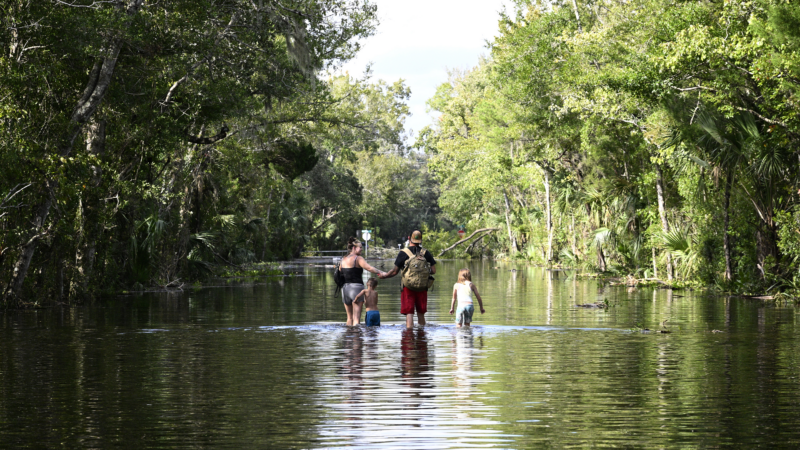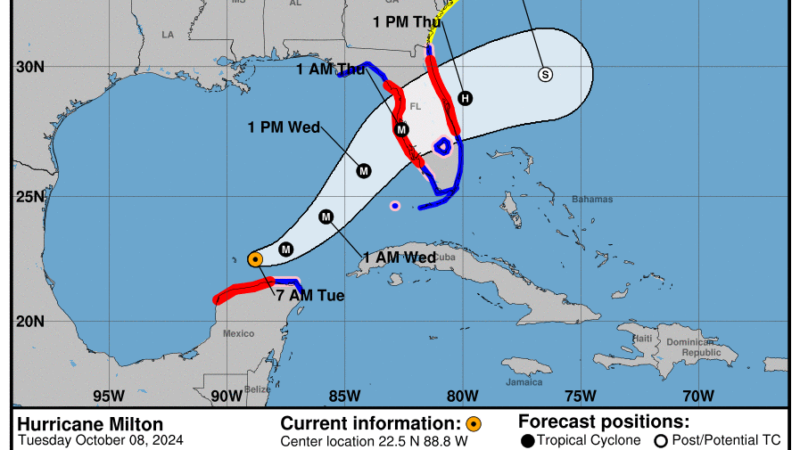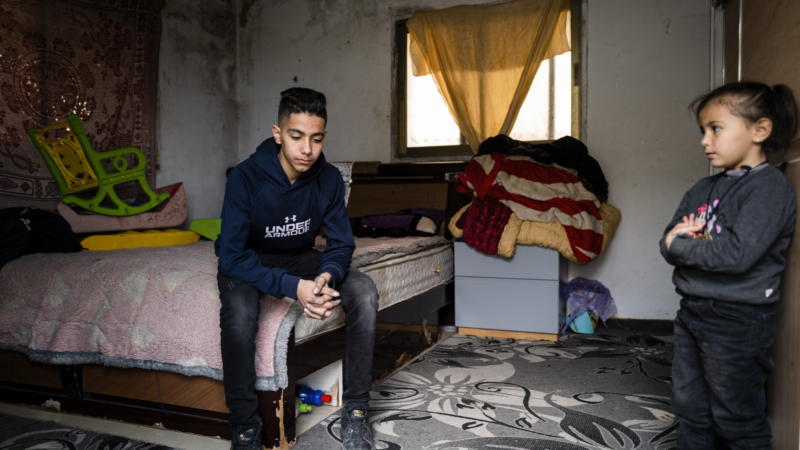Are hurricanes getting worse? Here’s what you need to know
Hurricane Milton is bearing down on Florida, threatening some areas hit hard by Hurricane Helene less than two weeks ago.
Milton will be the fifth hurricane to make landfall in the U.S. this year. Like Helene, the storm has gained strength rapidly as it spins across the Gulf of Mexico, where water temperatures are abnormally high.
The back-to-back storms illustrate potential dangers as human-caused climate change makes hurricanes more intense.
Below, we break down how warming temperatures are changing hurricane season. In the U.S., hurricane season officially ends Nov. 30.
Are hurricanes becoming more frequent?
Climate change has not led to an increase in the total number of hurricanes hitting the U.S. each year. But the storms that do form are more likely to become more intense, with higher wind speeds, heavier rainfall, and more severe storm surge.
So while the total number of storms doesn’t appear to be changing, dangerous storms are becoming more common.
This year has actually seen fewer hurricanes than expected. But an unusual number of those storms have made landfall in the U.S.
When Hurricane Milton reaches Florida, it will be the fifth named storm to make landfall in the U.S. this year. That’s close to the record seven storms that hit the U.S. in 2020.
Loading…
Loading…
The number of storms that make landfall in a given year doesn’t necessarily indicate how destructive a hurricane season is. Neither does the category, which measures wind speed but not rainfall or storm surge. In 2012, only two hurricanes hit the U.S., both were Category 1 at landfall. But one of them was Hurricane Sandy, which caused tens of billions of dollars in damage up and down the East Coast.
How does climate change make hurricanes worse?
To put it simply, warmer ocean temperatures fuel more powerful storms – and climate change is driving record-high sea surface temperatures.
The Atlantic Ocean, where hurricanes that hit the U.S. form, and the Gulf of Mexico just off Florida, have been hotter than average for more than 18 months, driven both by climate change and the recent El Nino weather pattern.
Loading…
Warmer ocean temperatures can lead to heavier rainfall and more severe flooding. Storms like Hurricane Helene suck up huge amounts of moisture as they move towards land, which then falls as rain, and can cause flooding far from the coast.
Climate change is also driving sea levels higher, which means more dangerous storm surges.
Scientists are also exploring whether climate change is causing storms to gain strength more quickly, as Hurricanes Beryl, Helene, and Milton have all done this year. In recent years, the U.S. has been hit by many storms that became more powerful just before landfall, which can make it more difficult to prepare and evacuate communities in time.
What hurricanes have happened in 2024?
So far, four hurricanes have made landfall in the U.S., and Hurricane Milton is projected to reach Florida within days.
- Hurricane Milton is currently a Category 5 hurricane, though it may weaken before hitting Florida.
- Hurricane Helene hit the Big Bend area of Florida on Sept. 26 as a Category 4 storm, and went on to drive catastrophic flooding across the Southeast.
- Hurricane Francine made landfall in Louisiana as a Category 2 storm on Sept. 11, causing surprise flooding in New Orleans and leaving over 400,000 people without power.
- Hurricane Debby hit the Big Bend area of Florida on Aug. 5 as a Category 1 storm, and inundated the region with heavy rainfall.
- Hurricane Beryl formed in June, becoming the most powerful hurricane ever recorded so early in the season. It caused widespread damage across the Caribbean before making landfall in Texas as a Category 1 storm on July 8, and leaving more than 2 million people in Houston without power.
More than a dozen states sue TikTok, alleging it harms kids and is designed to addict them
Lawsuits filed by more than a dozen state attorneys general argue that TikTok knowingly exacerbates the youth mental health crisis and places profits over child safety.
How to follow the latest local updates on Hurricane Milton
As of Tuesday morning, Hurricane Milton was just over 500 miles southwest of Tampa, Fla, and expected to make landfall late Wednesday night.
Fact-checking lies about FEMA funding. And, turn climate anxiety into action
Former President Donald Trump has made several claims about FEMA's disaster response. NPR has fact-checked them ahead of Hurricane Milton. And, how you can turn climate anxiety into collective action.
The end of smallpox was … the beginning for mpox
Wiping out smallpox had an unintended consequence: the rise of mpox in the past few years. Here's the story — starting with patient zero for mpox back in 1970.
One boy’s story shows the impact of rising Israeli settler violence in the West Bank
After his father was killed by Israeli settlers raiding his village in the central West Bank, he says, 15-year-old Noor Assi sometimes envies other teens, but says, "I have a family to take care of."
LGBTQ+ women face disproportionate rates of mental health issues and barriers to care
A new report finds that LGBTQ+ women in the U.S. experience high rates of trauma, mental illness, and other health conditions. And they're less likely to seek medical care.







